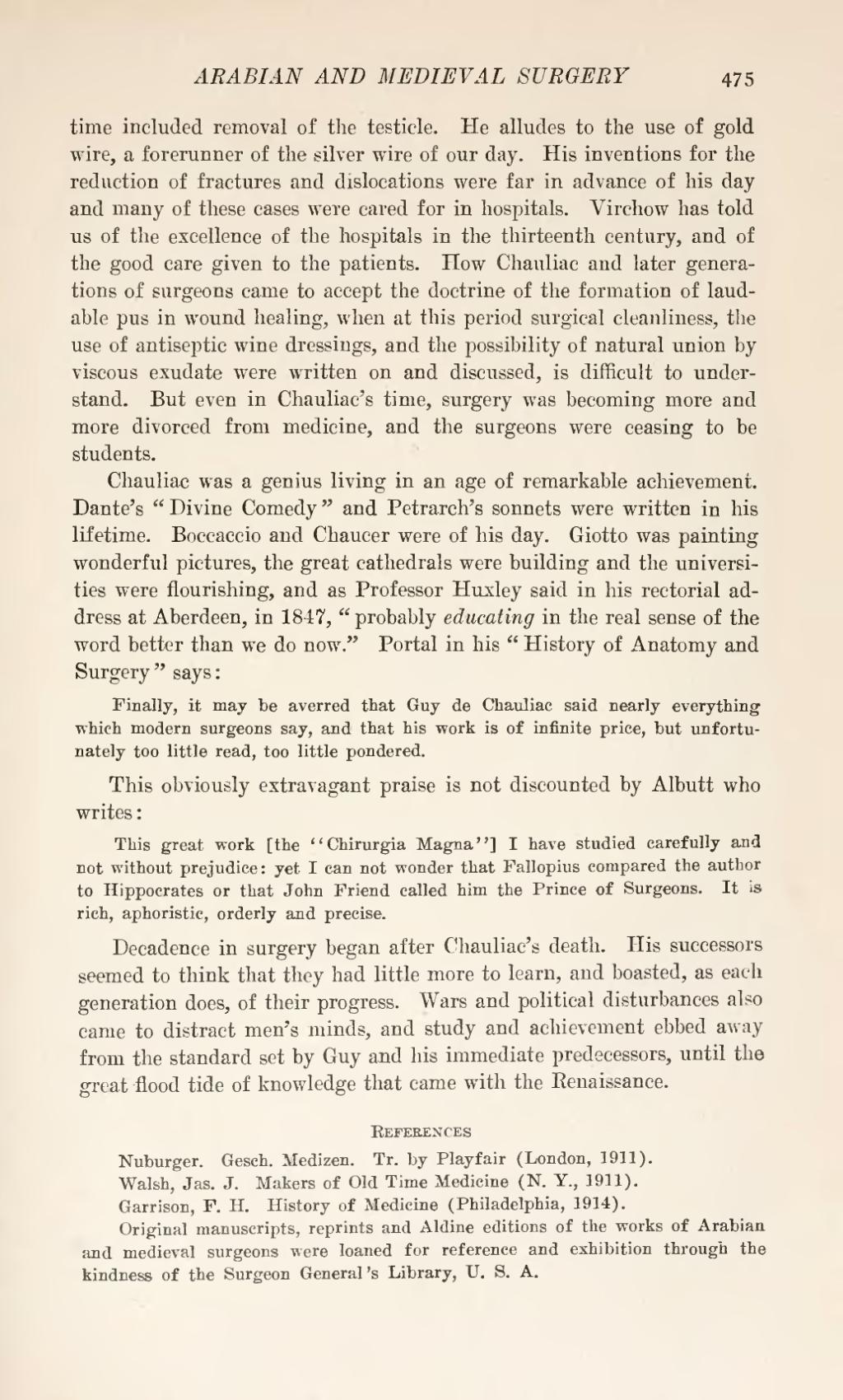time included removal of the testicle. He alludes to the use of gold wire, a forerunner of the silver wire of our day. His inventions for the reduction of fractures and dislocations were far in advance of his day and many of these cases were cared for in hospitals. Virchow has told us of the excellence of the hospitals in the thirteenth century, and of the good care given to the patients. How Chauliac and later generations of surgeons came to accept the doctrine of the formation of laudable pus in wound healing, when at this period surgical cleanliness, the use of antiseptic wine dressings, and the possibility of natural union by viscous exudate were written on and discussed, is difficult to understand. But even in Chauliac's time, surgery was becoming more and more divorced from medicine, and the surgeons were ceasing to be students.
Chauliac was a genius living in an age of remarkable achievement. Dante's "Divine Comedy" and Petrarch's sonnets were written in his lifetime. Boccaccio and Chaucer were of his day. Giotto was painting wonderful pictures, the great cathedrals were building and the universities were flourishing, and as Professor Huxley said in his rectorial address at Aberdeen, in 1847, "probably educating in the real sense of the word better than we do now." Portal in his "History of Anatomy and Surgery" says:
Finally, it may be averred that Guy de Chauliac said nearly everything which modern surgeons say, and that his work is of infinite price, but unfortunately too little read, too little pondered.
This obviously extravagant praise is not discounted by Albutt who writes:
This great work [the "Chirurgia Magna"] I have studied carefully and not without prejudice: yet I can not wonder that Fallopius compared the author to Hippocrates or that John Friend called him the Prince of Surgeons. It is rich, aphoristic, orderly and precise.
Decadence in surgery began after Chauliac's death. His successors seemed to think that they had little more to learn, and boasted, as each generation does, of their progress. Wars and political disturbances also came to distract men's minds, and study and achievement ebbed away from the standard set by Guy and his immediate predecessors, until the great flood tide of knowledge that came with the Renaissance.
References
Nuburger. Gesch. Medizen. Tr. by Playfair (London, 1911).
Walsh, Jas. J. Makers of Old Time Medicine (N. Y., 1911).
Garrison, F. H. History of Medicine (Philadelphia, 1914).
Original manuscripts, reprints and Aldine editions of the works of Arabian and medieval surgeons were loaned for reference and exhibition through the kindness of the Surgeon General's Library, U. S. A.

